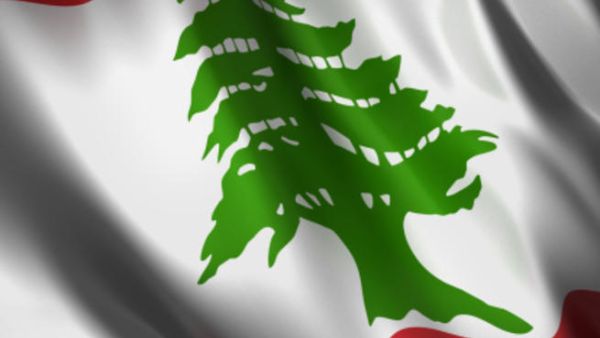Lebanon lacks a general strategy in terms of renewable energy and doesn’t follow international energy trends, the Lebanese Environmental Party told a conference Tuesday aimed at evaluating the government’s progress after a 2009 pledge to produce 12 percent of its energy needs from renewable sources by 2020.
Government officials and energy experts participated in the conference organized by the Lebanese Environmental Party and the German organization Friedrich-Ebert-Stiftung, which released a joint report assessing the situation and issuing recommendations.
The Lebanese Environment Party’s Habib Maalouf blamed the government for “still not having a strategy” and lamented the energy minister’s absence from the conference. But he believed that with the country’s important natural resources, the 2020 goal could even be 50 percent. He stressed the need to “make use of nature resources such as water and air,” and to “rationalize the conception and equal distribution of energy.”
Quoting the report, Maalouf said there were many ways to produce energy from water through the natural courses of rivers, without having to build dams. “Water energy is less costly and very available in Lebanon,” he said, also highlighting the need to supply the transportation sector with renewable energy sources.
“We need to consider renewable energy a priority, and for now it’s not a priority,” Maalouf told The Daily Star, adding that discussions of possible gas and oil resources in the Mediterranean, currently a contentious issue between Cyprus, Turkey, Israel and Lebanon, shouldn’t even take place as these resources do not help the drive to develop renewable energy sources. But he acknowledged it would be hard to change mentalities and fight against “traditional energy resources.”
“Lebanon is not ready, that’s why we’re having this conference, to give new ideas as an alternative to traditional energies.” Samir Farah, from the Friedrich-Ebert-Stiftung organization, said Lebanon needed to “catch up” as “we’re a long way behind” in terms of renewable energy.
He blamed the Lebanese for being “very keen on praising the beauty of Lebanon” while ignoring the fact that the country lacked “daily basics” such as electricity or water, and saying renewable energy could contribute to solving the problem.
“What we need in Lebanon is a strategy that provides Lebanese with permanent supplies of energy and water” by using natural resources, said Farah, who acknowledged this wouldn’t be easy. He also condemned the fact that energy was a “political question,” giving as an example the recent six-week battle over endorsing a new law to revamp the electricity sector.
Both the Environment Party and Friedrich-Ebert-Stiftung acknowledged that the environment and energy ministries had been cooperating on the matter but said no strategic plans had materialized yet, predicting this would have a negative impact on efforts to reach the 2020 goal.
They said an “Energy Sector Policy Paper” tackling renewable energy, released by the Energy Ministry in 2010, lacked a comprehensive strategy and vision, and failed to determine present and future needs or set priorities for expenditure and funding. But Energy and Water Minister Jibran Bassil’s representative Pierre Khoury told The Daily Star his ministry was committed to renewable energy to the extent that he thinks Lebanon capable of exceeding its 12 percent goal. He believes the passing of the new electricity law last week gives a “real boost to renewable energy.”
“If you combine legislative changes with serious work on the ground we can reach this number 12 percent,” he said, adding the government was continuing the work the previous government had started and that Bassil was “really pushing for renewable energy.” “For the first time ever, the previous government committed to the 12 percent goal. The Energy Ministry has reconfirmed this commitment in the policy paper for the electricity sector” and the government has approved it.
Khoury denied civil society claims that no concrete steps had been taken and that the government lacked a strategy, arguing that Lebanon was the first country to adopt a National Energy Efficiency Action Plan, an international initiative dedicated to energy efficiency and renewable energy.
“Lebanon is committed and serious work is going on on the ground,” he insisted, saying the “biggest challenge” the ministry is facing is to ensure the 12 percent production was “the supply side, meaning building actual wind farms, actual solar plants.” But he also explained the ministry had taken many initiatives, such as the completion of a “wind atlas,” which aims at preselecting wind farms and preparing project implementation. He said establishing wind farms in itself wouldn’t take time, and that “the difficult thing is to draw the atlas, prepare the legislation, raise awareness and ensure the financing.”
He said the ministry was also working on a biomass national strategy for another renewable energy sector, and that legislation for distributing renewable energy had already been approved by Electricite du Liban. He also reiterated the ministry’s readiness to cooperate with the Environment Party.
Environment Minister Nazim Khoury, who compared his ministry to a “new-born child” that “doesn’t have a real place until now … within the structure of the government,” told The Daily Star he “had to be optimistic” about reaching the objective of 12 per cent. He praised the Energy Ministry for being “open to close coordination” and believed “we are on the right track to see some progress and to reach in 2020 the 12 percent” objective. He said the government was taking “very practical steps to reach this objective” and blamed the slow progress on political “paralysis,” a “major handicap for any progress in implementing strategies and plans.”
Khoury said his ministry is implementing several renewable energy programs, such as a project to provide hospitals and prisons with hot water through solar heaters. He added that it is also working on a national report on climate change and establishing national committees involving all concerned actors.








